Events
PAST EVENTS
WORKSHOP - "BETWEEN THE CARDS"
On Thursday June 9 at Villa Vassilieff, from 2pm to 7pm
With the intention of continuing the tracing “weeds” after his arrival at Villa Vassilieff, this envisioned participatory project is concerned with long-term maintenance. The workshop will bring together volunteers to assign the “gardening” of the city. The participants will be free to take the seeds of plants that have significant meaning to them and plant them in relation to trajectories of exile and human travel. The workshop thence acts as a metaphor for the movement of the body. Zheng Bo intends to start conversations and actions around plants and seeds that migrants carry with them and to imagine how they might fit into the Parisian landscape.
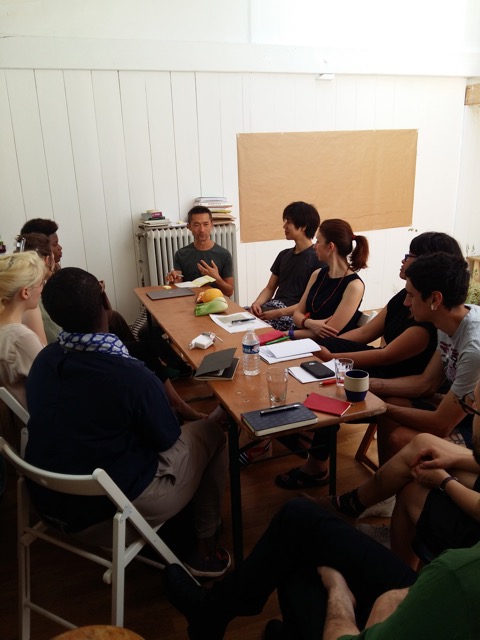
- June 9 Workshop, Gathering around Zheng Bo in Villa Vassilieff’s studio. Image courtesy : Villa Vassilieff.
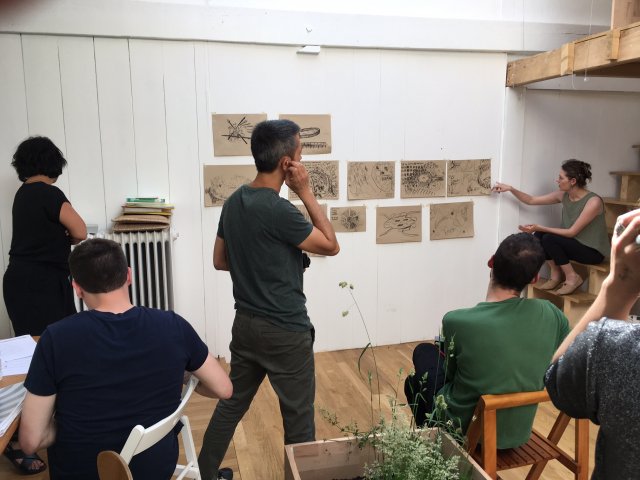
- June 9 Workshop, Gathering around Zheng Bo in Villa Vassilieff’s studio. Image courtesy : Villa Vassilieff.

- June 9 Workshop, Gathering around Zheng Bo in Villa Vassilieff’s studio. Image courtesy : Villa Vassilieff.
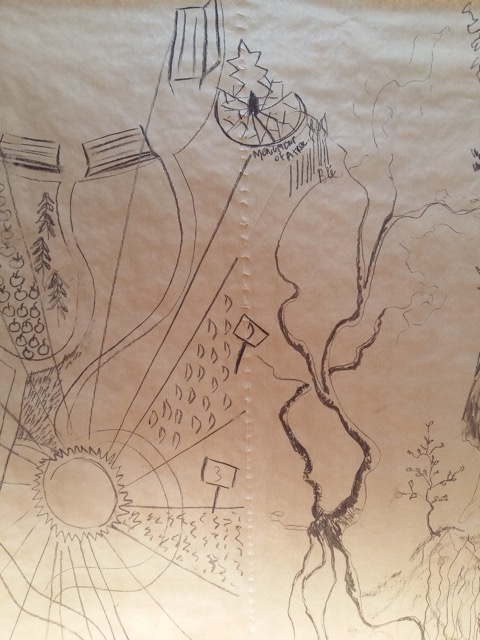
- June 9 Workshop, Gathering around Zheng Bo in Villa Vassilieff’s studio. Image courtesy : Villa Vassilieff.
Thursday December 8
At Villa Vassilieff
MODALITIES OF CO-CREATION PRACTICES
With Zheng Bo

- Zheng Bo, Pteridophilia (video screenshot), 2016.
Title: Plants as Political Allies
Zheng Bo is a Chinese artist, currently in residency at Villa Vassilieff with the Pernod Ricard Fellowship. His project investigates the linkage between political parties as a persistent political form despite our contempt, and weeds as an irrepressible ecological force despite our discomfort. By asking the seemingly illogical question – what roles did weeds play in the establishment of the “Chinese Young Communist Party” in Paris by Chinese students in the 1920s – Zheng Bo intends to complicate the canonical histories of the Chinese Communist Party and international communism, and push for a more historical understanding of the roots of contemporary ecological crisis in China, and globally.
In the second phase of his project, in conversation with sociologists, political scientists, and botanists in Paris, Zheng Bo continues to fantasize the post-human political party named "Weed Party". How would this party’s ideological, organizational, and emotional shape differ from that of previous communist parties? This project builds on his previous and current practice – Weed Party: Shanghai (2014-15, focusing on the botanical footprints of the Chinese Communist Party in Shanghai) and Weed Party: Taipei (current, focusing on the ecological impact of the Nationalist Party’s retreat from Mainland China to Taiwan in 1949). In Paris, it notably developed through the first workshop in June, and will continue with a second workshop in collaboration with Ecole du Breuil in December.
The aim of this project is to rethink internationalism and expand the notion of an international alliance of the working class to incorporate other working beings. For the seminar « Héritages et modalités des pratiques de co-création », Zheng Bo proposes to focus on the idea of equality: how can we treat plants as equal partners? How can we co-create politically with plants?
Each student is requested to bring a living plant for the seminar, and watch this documentary in advance of December 8.
The seminar will exceptionally take place in the Pernod Ricard studio at Villa Vassilieff. This session is for Paris 8 students only.
More information here.
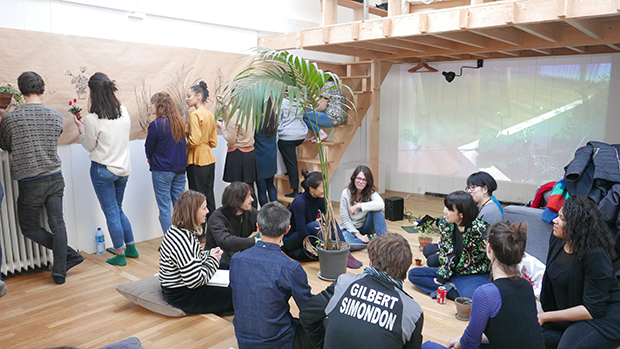
- Seminary "Modalities of co-creation practices" with students from Paris 8 received by Zheng Bo in the Pernod Ricard studio, 2016.
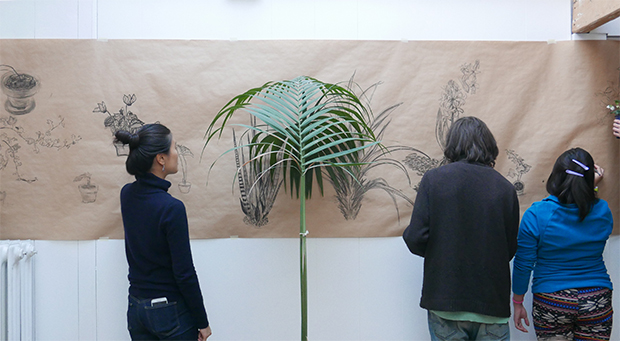
- Seminary "Modalities of co-creation practices" with students from Paris 8 received by Zheng Bo in the Pernod Ricard studio, 2016.
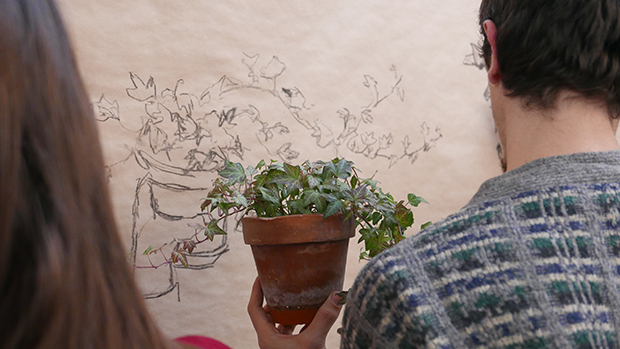
- Seminary "Modalities of co-creation practices" with students from Paris 8 received by Zheng Bo in the Pernod Ricard studio, 2016.

- Seminary "Modalities of co-creation practices" with students from Paris 8 received by Zheng Bo in the Pernod Ricard studio, 2016.
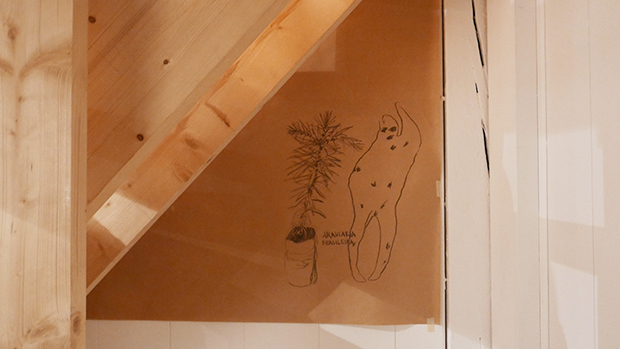
- Seminary "Modalities of co-creation practices" with students from Paris 8 received by Zheng Bo in the Pernod Ricard studio, 2016.
Wednesday December 14, from 2 to 6 p.m & Thursday December 15, from 2 to 7 p.m
At École du Breuil
Historical Fantasy Workshop with Zheng Bo:
"A Chinese Communist Garden in 1920 Paris"
Between 1918 and 1920, about 2,000 Chinese students traveled to France to study and to work. Many of them – including Zhou Enlai and Deng Xiaoping – became devoted communists while in France.
How did they respond to the landscape in France, the gardens in Paris? If they had planted a garden in Paris in 1920, how would that garden look like?
There are two dimensions to this historical fantasy workshop: migration (Chinese people in France), and communism.
Today a Chinese person living in Paris can find all kinds of Chinese vegetables in Tang Supermarket. But in 1920, probably nothing from China. Did those Chinese students bring seeds of Chinese vegetables with them? Or perhaps they tasted different wild plants in Paris to see which ones taste like Chinese vegetables? …
Communism is about imagining an ideal world. A garden is an experimental space to imagine different relationships between human beings and plants. In this sense, the idea of communism and the idea of a garden share the same imaginary quality. What would a communist garden look like? Would flowers be allowed in this garden? Would all plants be edible? What about weeds? (Mao Zedong later would describe all “wrong ideas” as “poisonous weeds.”) I’ll do some preliminary research on how the Chinese Communist Party transformed gardens after it took power in 1949. Any other historical lessons we can reference – USSR? Cuba? North Korea? Did the French Communist Party do anything with gardens?
![]() Zheng Bo
Zheng Bo
This session is for École du Breuil students only.
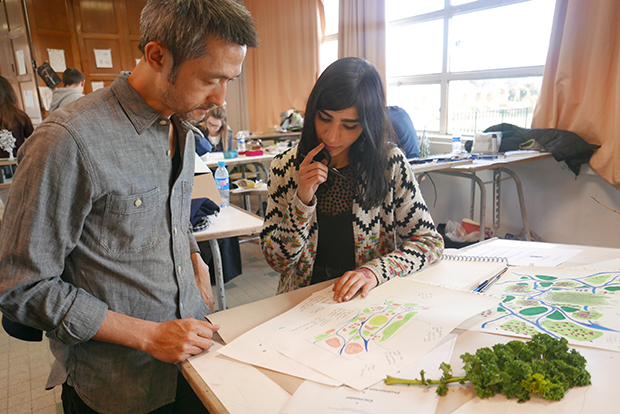
- Zheng Bo visited the Ecole du Breuil for his workshop ""A Chinese Communist Garden in 1920 Paris"" with the students in second years of BTS, 2016.
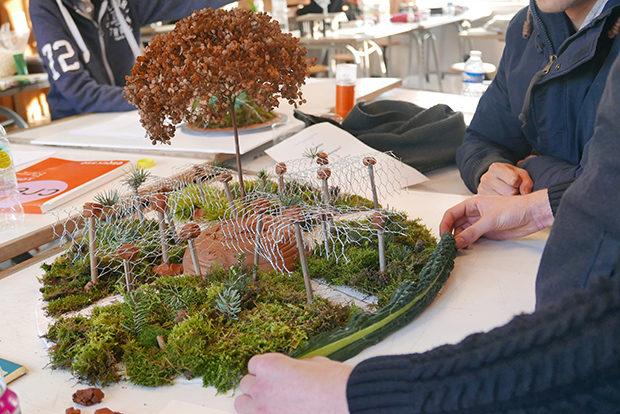
- Zheng Bo visited the Ecole du Breuil for his workshop ""A Chinese Communist Garden in 1920 Paris"" with the students in second years of BTS, 2016.
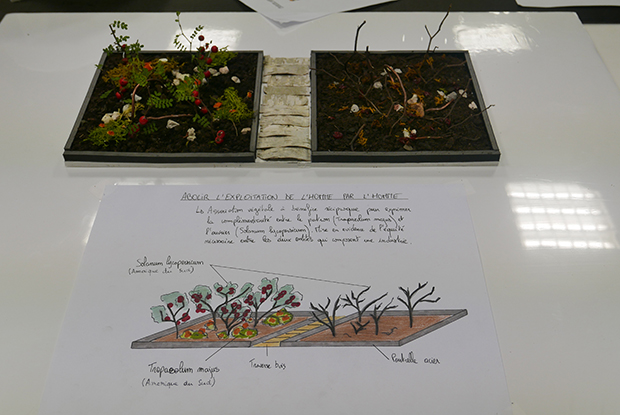
- Zheng Bo visited the Ecole du Breuil for his workshop ""A Chinese Communist Garden in 1920 Paris"" with the students in second years of BTS, 2016.
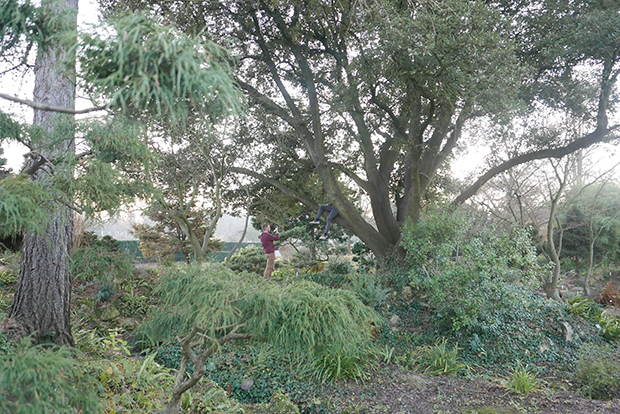
- Zheng Bo visited the Ecole du Breuil for his workshop ""A Chinese Communist Garden in 1920 Paris"" with the students in second years of BTS, 2016.
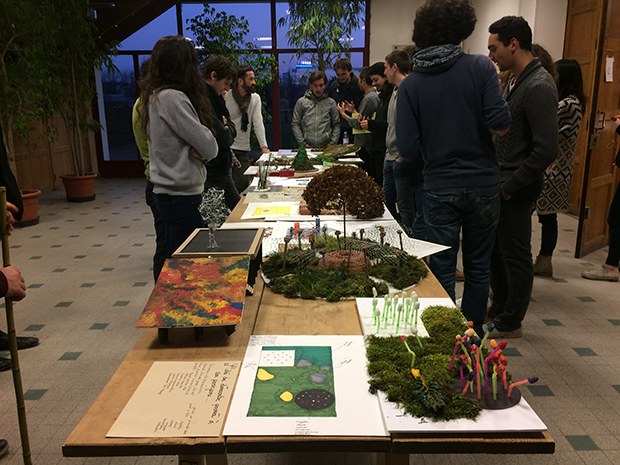
- Zheng Bo visited the Ecole du Breuil for his workshop ""A Chinese Communist Garden in 1920 Paris"" with the students in second years of BTS, 2016.
Share